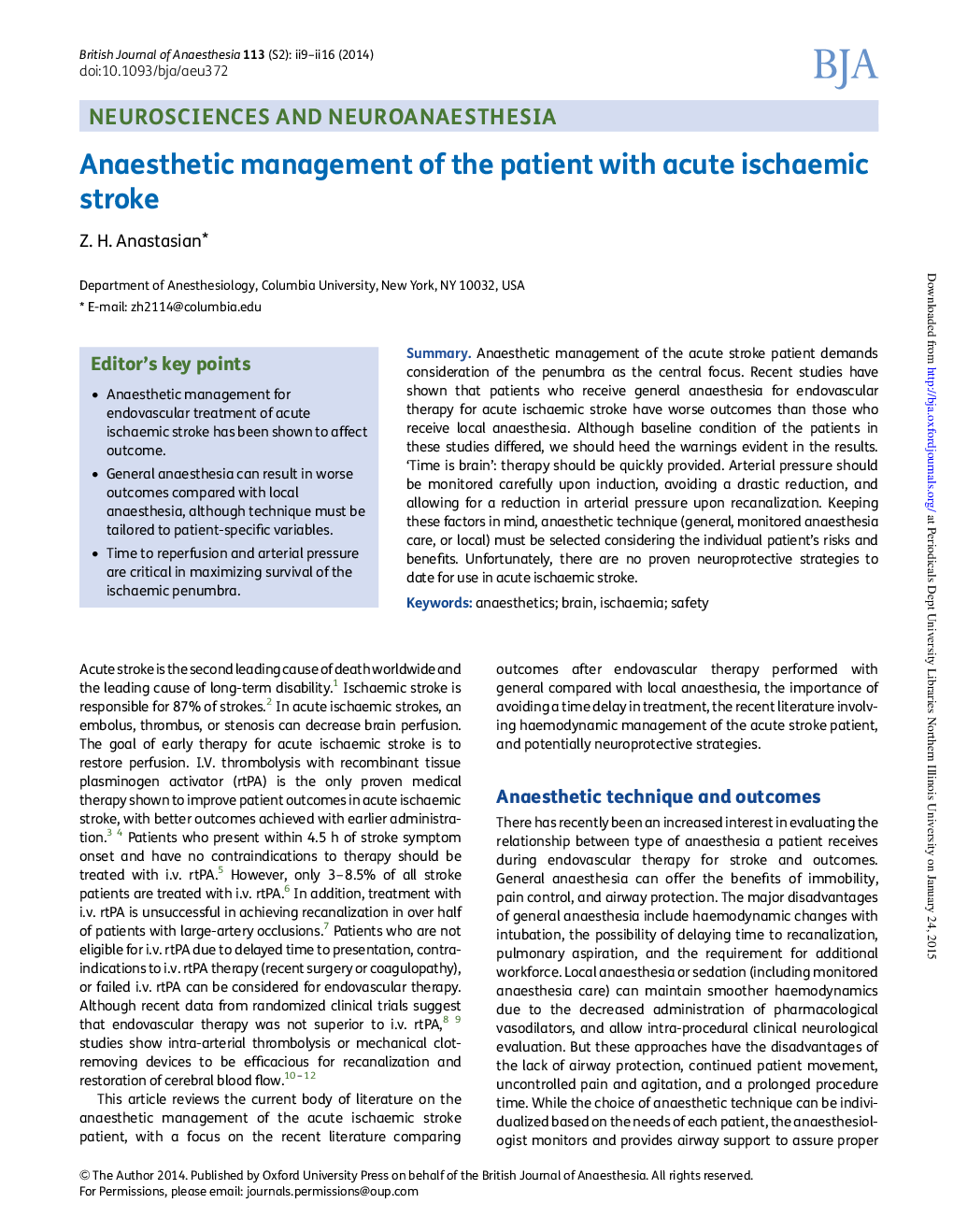| Article ID | Journal | Published Year | Pages | File Type |
|---|---|---|---|---|
| 8932678 | British Journal of Anaesthesia | 2014 | 8 Pages |
Abstract
Anaesthetic management of the acute stroke patient demands consideration of the penumbra as the central focus. Recent studies have shown that patients who receive general anaesthesia for endovascular therapy for acute ischaemic stroke have worse outcomes than those who receive local anaesthesia. Although baseline condition of the patients in these studies differed, we should heed the warnings evident in the results. 'Time is brain': therapy should be quickly provided. Arterial pressure should be monitored carefully upon induction, avoiding a drastic reduction, and allowing for a reduction in arterial pressure upon recanalization. Keeping these factors in mind, anaesthetic technique (general, monitored anaesthesia care, or local) must be selected considering the individual patient's risks and benefits. Unfortunately, there are no proven neuroprotective strategies to date for use in acute ischaemic stroke.
Keywords
Related Topics
Health Sciences
Medicine and Dentistry
Anesthesiology and Pain Medicine
Authors
Z.H. Anastasian,
